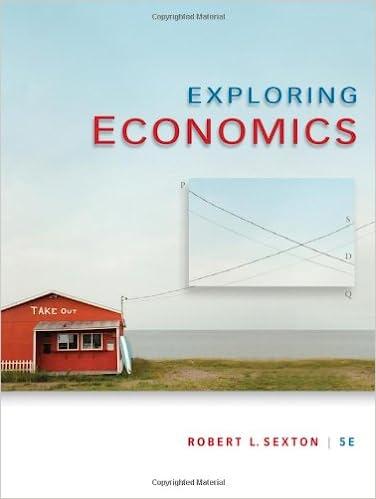True or False: 1. The principle of comparative advantage can be applied to regional markets. 2. A
Question:
1. The principle of comparative advantage can be applied to regional markets.
2. A trading area may be a locality, a region, or a nation.
3. If two nations with different opportunity costs of production specialize, total output of both products may be higher as a result.
4. By specializing in products in which it has a comparative advantage, an area can have more goods and services if it trades the added output for other goods and services that others can produce at a lower opportunity cost.
5. By specialization according to comparative advantage and trade, two parties can each achieve consumption possibilities that would be impossible for them without trade.
6. The difference between the least amount for which a supplier is willing to supply a quantity of a good or service and the revenues a supplier actually receives for selling it is called consumer surplus.
7. Trading at the market equilibrium price generates both consumer surplus and producer surplus.
8. Once the equilibrium output is reached at the equilibrium price, all of the mutually beneficial opportunities from trade between suppliers and demanders will have taken place.
9. The total gain to the economy from trade is the sum of consumer and producer surpluses.
10. When the domestic economy has a comparative advantage in a good, allowing international trade benefits domestic consumers but harms domestic producers.
Fantastic news! We've Found the answer you've been seeking!
Step by Step Answer:
Related Book For 

Question Posted:





